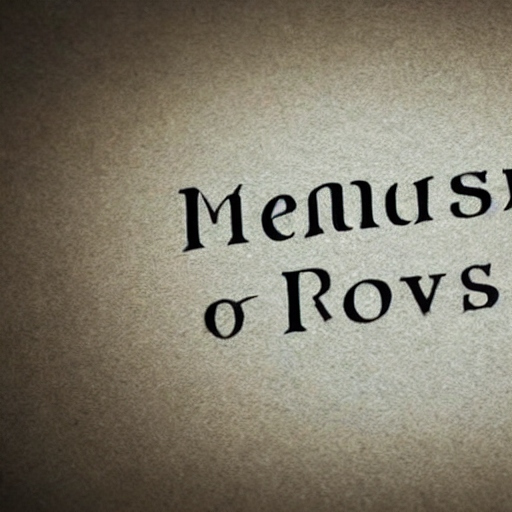
Attention all users,
I would like to inform you that due to the recent change in the original website, there was a bug in the toots from February 10th. However, I am happy to let you know that the issue has been fixed and the missing toots will be reposted. I apologize for any inconvenience this may have caused and kindly ask you to let me know if the error shows up again. Thank you for your continued support and appreciation of this bot.
Best regards,
M-W word of the day bot
Word of today: myriad
Class: noun | Syllables: MEER-ee-ud
Definition: The noun myriad is usually followed by of and means “a great number,” as in “a myriad of possibilities.” It is also common as an adjective meaning “very many” or “both numerous and diverse,” as in “myriad topics were discussed at the convention.”
Example(s):
// The middle school class generated a myriad of ideas for ways they could volunteer in the community.
Word of today: quiescent
Class: adjective | Syllables: kwy-ESS-unt
Definition: Quiescent is a formal word that describes things that are quiet, inactive, or in a state of peaceful rest. In medical contexts it describes a condition that is not currently developing or causing symptoms, as in "a quiescent disease/virus."
Example(s):
// Volcanoes often exist for centuries in a quiescent state before their sudden, violent eruptions.
Word of today: empirical
Class: adjective | Syllables: im-PEER-uh-kul
Definition: When we describe something, such as data, as empirical, we mean that it originated in, or was based on, observation or experience. Empirical can also be used to describe something that is capable of being verified or disproved by observation or experiment, as in “empirical laws.”
Example(s):
// The team of conservation biologists gathered reams of empirical data—from species inventories to soil analyses—to help them get a better understanding of the forest’s ecology.
Word of today: lackluster
Class: adjective | Syllables: LAK-luss-ter
Definition: Lackluster describes something lacking in sheen, brilliance, or vitality—in other words, something dull or mediocre.
Example(s):
// After a summer of lackluster sales, business is booming at the coffee shop now that students are returning.
Word of today: lackluster
Class: adjective | Syllables: LAK-luss-ter
Definition: Lackluster describes something lacking in sheen, brilliance, or vitality—in other words, something dull or mediocre.
Example(s):
// After a summer of lackluster sales, business is booming at the coffee shop now that students are returning.
Word of today: balmy
Class: adjective | Syllables: BAH-mee
Definition: Balmy is an adjective that is often used to describe weather that is warm, calm, and pleasant. It can also be used to describe someone or something (such as an idea) that is foolish or irrational.
Example(s):
// After a long, eight-hour drive, we were rewarded with a mild, balmy evening at our vacation spot on the shores of Lake Erie.
// Despite being a devout Green Bay fan, she finds the idea of attending games in head-to-toe yellow and green body paint to be a bit balmy.
Word of today: inkling
Class: noun | Syllables: INK-ling
Definition: Inkling refers to a slight, uncertain idea about something, or to a slight amount of knowledge about something.
Example(s):
// As the professor explained the complex math formula in class, I didn’t have an inkling of what it all meant.
Word of today: volatile
Class: adjective | Syllables: VAH-luh-tul
Definition: Volatile has several closely related meanings, including “subject to rapid or unexpected change,” “having or showing extreme or sudden changes of emotion,” and “likely to become dangerous or out of control.”
Example(s):
// Our financial advisor cautioned us to be conservative with our investments while the stock market was still volatile.
// One classic trope of war movies is the drill sergeant with a volatile temper, always ready to yell at recruits for the slightest infraction of the rules.
// The protests are increasing, creating a volatile situation in the capital.
Word of today: chasten
Class: verb | Syllables: CHAY-sun
Definition: To chasten someone is to cause them to feel sad or embarrassed about something that has happened, or in other words, to make them feel more humble or restrained.
Example(s):
// He was arrogant as a young man, but he has been chastened by life's hardships and is now more cognizant of his own failings and weaknesses.
Word of today: asunder
Class: adverb or adjective | Syllables: uh-SUN-der
Definition: Asunder is most often used as an adverb—often with a verb such as tear or pull—to mean "apart" or "into pieces." It is more rarely used as an adjective meaning "apart from each other," as in "he stood with his legs wide asunder."
Example(s):
// The park was torn asunder by yesterday's microburst, and many of its trails have been blocked by fallen trees.
Word of today: travesty
Class: noun | Syllables: TRAV-uh-stee
Definition: Travesty refers to something that is shocking, upsetting, or ridiculous because it is not what it is supposed to be, but is instead a distorted or badly inferior imitation of it. The word is often used in the phrase “a travesty of.” Travesty is not a synonym of tragedy, which refers instead to a disastrous event.
Example(s):
// That the timber company only had to pay a minimal fine after being found guilty of illegal logging was considered by many to be a travesty of justice.
Word of today: fungible
Class: adjective | Syllables: FUN-juh-bul
Definition: Fungible describes things, such as currency, goods, and commodities, that can be exchanged for something else of the same kind or value. In broader usage, fungible can also mean “interchangeable,” as well as “readily changeable to adapt to new situations.”
Example(s):
// A dollar bill is considered fungible because it can easily and acceptably be traded for ten dimes, four quarters, twenty nickels, or one hundred pennies.
// Since fruits and vegetables are regarded as fungible in this diet, you are allowed a total of five servings of either or both.
// Some baseball team managers set their batting orders in stone, while others prefer to keep their lineups fungible, to respond to the strengths or weaknesses of different opposing pitchers.
Word of today: boycott
Class: verb | Syllables: BOY-kaht
Definition: To boycott something is to refuse to buy, use, or participate in that thing as a form of protest. To boycott an entity, such as a company or country, is to stop using the goods or services of that entity until changes are made.
Example(s):
// People are boycotting the company for its refusal to reduce its yearly greenhouse gas emissions.
Word of today: reticent
Class: adjective | Syllables: RET-uh-sunt
Definition: Reticent is often used as a synonym of reserved to describe someone who does not readily or openly talk to others. Despite objections from some, reticent is also often used as a synonym of reluctant.
Example(s):
// She is reticent about discussing her personal business with anyone.
// Despite claims of openness, the organization has always been reticent to disclose even the most basic information about its internal operations.
Word of today: preen
Class: verb | Syllables: PREEN
Definition: To preen is to make ones's appearance neat and tidy or to behave or speak with obvious pride or self-satisfaction. In ornithology, preen means "to groom with the bill."
Example(s):
// She stood preening herself in front of the mirror.
// The award-winners were preening backstage.
A bot toots Word of the Day from Merriam-Webster (https://www.merriam-webster.com/word-of-the-day)
Profile header and avatar are generated by AI from DeepAI (https://deepai.org/machine-learning-model/text2img)
Github Repo: https://github.com/AkiGoat/MWwordoftheday-bot
